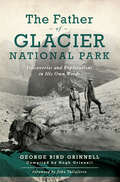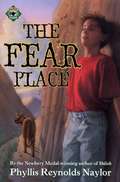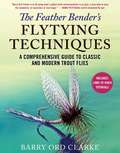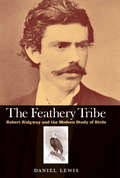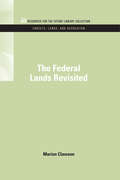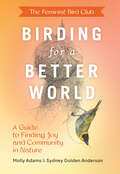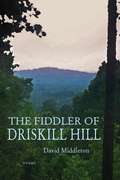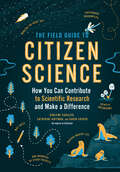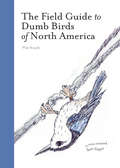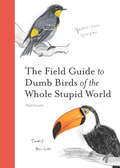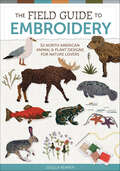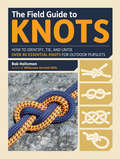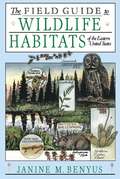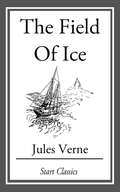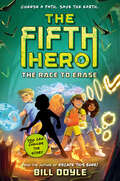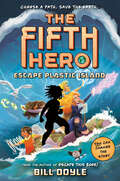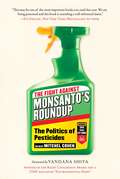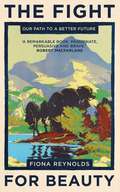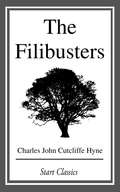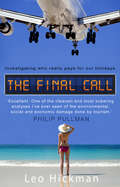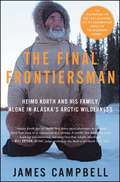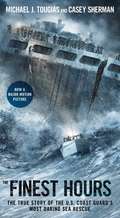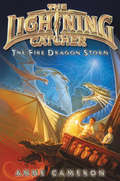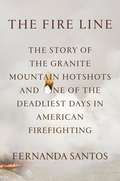- Table View
- List View
The Father of Glacier National Park: Discoveries and Explorations in His Own Words
by George Bird GrinellThe story of this glorious Montana landmark, told through the journals and letters of the man who fought to conserve it—maps and photos included. With his small group of explorers, George Bird Grinnell discovered and named forty geological features east of the Continental Divide and west of the Blackfeet Reservation. He also happened to be a prolific writer and record-keeper who diligently made time in camp for meticulous journal entries. As a result, he wrote a series of articles about his trips from 1885 to 1898 for publication in Forest and Stream. In 1891, he began advocating to protect the area as a national park—and led that charge for nearly two decades until successful. His discoveries, publications, and leadership led to the creation of Glacier National Park. In this book, his cousin Hugh Grinnell compiles first-person narratives from unpublished journal entries, personal correspondence, and dozens of articles to tell the early story of Glacier.
The Fear Place
by Phyllis Reynolds NaylorWhen he and his older brother Gordon are left camping alone in the Rocky Mountains, 12-year-old Doug faces his fear of heights and his feelings about Gordon, with the help of a cougar.
The Feather Bender's Flytying Techniques: A Comprehensive Guide to Classic and Modern Trout Flies
by Barry Ord ClarkeA comprehensive, lavishly illustrated guide to tying popular trout flies. This book is aimed at all fly tyers, from those with modest experience to those with more advanced skills. The author&’s intention is to focus on certain important elementary techniques, and then share some of his favorite contemporary twists on old, tried-and-true techniques. Many of the flies in this book are based in his own techniques and patterns, ones that he has developed in more than thirty-five years of tying. The book is arranged in sections to give readers the opportunity to easily locate the pattern or technique they are looking for. Patterns are not grouped alphabetically, but by technique. For example, the section on dry flies has categories demonstrating a particular dry fly style or technique such as mastering the use of deer hair, parachute, CDC, and so on. If you are fairly new to fly tying, the opening chapters on materials and special techniques and tricks will familiarize you with some basics and help you get started. Seasoned tyers will similarly find information here to help them raise their tying skills to a new level. Each pattern is listed with a recipe, recommended hook style, size, and materials. They are listed in the order that that author uses them, and illustrated by the book&’s step-by-step images. This will help you plan each pattern and assemble materials your beforehand. Included are lushly illustrated photos for such well-known trout flies as: Pheasant tail nymphKlinkhamerHumpyDeer Hair IrresistibleCDC Mayfly SpinnerAnd much more. A special feature of this one-of-a-kind books is that its the first tying book to have a video link for all the patterns featured. Watch the author tying online, then turn to the matching chapter in the book to follow the step-by-step instructions so that you can tie your own fly in your own time. Author Barry Ord Clarke will respond online to your questions.
The Feathery Tribe
by Daniel LewisAmateurs and professionals studying birds at the end of the nineteenth century were a contentious, passionate group with goals that intersected, collided and occasionally merged in their writings and organizations. Driven by a desire to advance science, as well as by ego, pride, honor, insecurity, religion and other clashing sensibilities, they struggled to absorb the implications of evolution after Darwin. In the process, they dramatically reshaped the study of birds. Daniel Lewis here explores the professionalization of ornithology through one of its key figures: Robert Ridgway, the Smithsonian Institution’s first curator of birds and one of North America’s most important natural scientists. Exploring a world in which the uses of language, classification and accountability between amateurs and professionals played essential roles, Lewis offers a vivid introduction to Ridgway and shows how his work fundamentally influenced the direction of American and international ornithology. He explores the inner workings of the Smithsonian and the role of collectors working in the field and reveals previously unknown details of the ornithological journalThe Aukand the untold story of the color dictionaries for which Ridgway is known.
The Federal Lands Revisited (RFF Forests, Lands, and Recreation Set)
by Marion ClawsonPublic land management and ownership came under increasing scrutiny in the 1980s, partly because of the increased value of federal lands; prized for their timber, minerals, energy, and amenity outputs. The personal touch and wisdom of one of these prolific and thoughtful writers on land use issues ensure that this book is a valuable addition to a literature to which Dr. Clawson already has made enormous contributions. For its readers, this book provides fresh insights and suggests new approaches to a problem that has been heavily discussed.
The Feminist Bird Club's Birding for a Better World: A Guide to Finding Joy and Community in Nature
by Sydney Anderson Molly Adams"Through the Feminist Bird Club, Molly Adams and Sydney Golden Anderson have walked the walk of inclusive birding; in Birding for a Better World, they talk the talk—this book got me to examine overlooked injustices, in and out of birding." —Christian Cooper, author of Better Living Through Birding and host/consulting producer of National Geographic's Extraordinary Birder TV show "It's a beautiful package for a beautiful idea: that a shared love of birds could also be a collective learning experience in social and ecological justice." – Jenny Odell, author of How to Do Nothing: Resisting the Attention EconomyA celebration of birding as an inclusive activity for everyone, from organizing members of the Feminist Bird Club.Birding is for everyone. That is the sentiment on which the Feminist Bird Club (FBC) was founded in 2016 and the spirit that is celebrated in this original and timely book. In these pages, Molly Adams, FBC founder, and Sydney Golden Anderson offer readers:A celebration of birding and the outdoorsExamples of how inclusive, affirming, and joyful an activity birding can beAwareness of the crucial inclusivity issues facing birding communities todayRelated ideas for radical inclusivity and how to break down barriers around birding for marginalized communitiesInformation on the ecological challenges facing birds and all life on earth including habitat loss and warming temperaturesActionable steps everyone can take toward environmental justiceJournaling prompts throughout to offer moments of self-reflectionNinety original illustrations from the FBC communityThe Feminist Bird Club's Birding for a Better World illustrates how anyone can engage in the universally available activity of birding, and support equity and environmental justice at the same time, making an excellent gift or self-purchase for seasoned birders and beginners alike, as well as for nature lovers, social justice activists, and anyone seeking actionable information about accessibility and inclusivity in the bird watching community.
The Fiddler Of Driskill Hill: Poems
by David MiddletonDavid Middleton's The Fiddler of Driskill Hill celebrates a particular place and the universal human experience. While evoking distinctive landscapes, both north and south, these poems address the great philosophical and theological questions of the ages. A mysterious fiddler climbs Driskill Hill -- the highest point of elevation in Louisiana -- under the cover of darkness to practice his craft.
The Field Guide to Citizen Science: How You Can Contribute to Scientific Research and Make a Difference
by Caren Cooper Darlene Cavalier Catherine HoffmanLearn how monitoring the night sky, mapping trees, photographing dragonflies, and identifying mushrooms can help save the world! Citizen science is the public involvement in the discovery of new scientific knowledge. A citizen science project can involve one person or millions of people collaborating towards a common goal. It is an excellent option for anyone looking for ways to get involved and make a difference. The Field Guide to Citizen Science, from the expert team at SciStarter, provides everything you need to get started. You&’ll learn what citizen science is, how to succeed and stay motivated when you&’re participating in a project, and how the data is used. The fifty included projects, ranging from climate change to Alzheimer&’s disease, endangered species to space exploration, mean sure-fire matches for your interests and time. Join the citizen science brigade now, and start making a real difference!
The Field Guide to Dumb Birds of North America (Dumb Birds Ser.)
by Matt KrachtNational bestselling book: Featured on Midwest, Mountain Plains, New Atlantic, Northern, Pacific Northwest and Southern Regional Indie Bestseller ListsPerfect book for the birder and anti-birder alikeA humorous look at 50 common North American dumb birds: For those who have a disdain for birds or bird lovers with a sense of humor, this snarky, illustrated handbook is equal parts profane, funny, and—let's face it—true.Featuring common North American birds, such as the White-Breasted Butt Nugget and the Goddamned Canada Goose (or White-Breasted Nuthatch and Canada Goose for the layperson), Matt Kracht identifies all the idiots in your backyard and details exactly why they suck with humorous, yet angry, ink drawings. With The Field Guide to Dumb Birds of North America, you won't need to wonder what all that racket is anymore!• Each entry is accompanied by facts about a bird's (annoying) call, its (dumb) migratory pattern, its (downright tacky) markings, and more.• The essential guide to all things wings with migratory maps, tips for birding, musings on the avian population, and the ethics of birdwatching.• Matt Kracht is an amateur birder, writer, and illustrator who enjoys creating books that celebrate the humor inherent in life's absurdities. Based in Seattle, he enjoys gazing out the window at the beautiful waters of Puget Sound and making fun of birds."There are loads of books out there for bird lovers, but until now, nothing for those that love to hate birds. The Field Guide to Dumb Birds of North America fills the void, packed with snarky illustrations that chastise the flying animals in a funny, profane way. " – UncrateA humorous animal book with 50 common North American birds for people who love birds and also those who love to hate birds• A perfect coffee table or bar top conversation-starting book• Makes a great Mother's Day, Father's Day, birthday, or retirement gift
The Field Guide to Dumb Birds of the Whole Stupid World (Dumb Birds Ser.)
by Matt KrachtLet's face it—all birds are fascinating, wonderful, idiotic jerks—no matter where in the world they reside.Following in the footsteps of the bestselling book The Field Guide to Dumb Birds of North America, this hilarious sequel ventures beyond to identify the stupidest birds around the world. Featuring birds from North and South America, Africa, Asia, Europe, and Oceania, author Matt Kracht identifies the dumb birds that manage to live all over the freaking place with snarky, yet accurate, names and humorous, anger-filled drawings.This guide book details exactly how much these morons suck with facts about each bird's (annoying) call, its (stupid) migratory pattern, and its (downright tacky) markings. Complete with a matching game, bird descriptor checklist, tips on how to identify a bird (you can tell a lot by looking into a bird's eyes, for example), this profanity-laden book offers a balance of fact and wit that will appeal to hardcore birders and casual bird lovers (and haters) alike.A MUST-HAVE: A must-have sequel to the bestselling parody book The Field Guide to Dumb Birds of North America.UNIQUE & LAUGH-OUT-LOUD FUNNY: This is a great coffee table or bar top conversation-starting book. And a bonus, while the content is humorous, it is practical and useful!A GREAT PRESENT: This is the perfect gift for the bird lovers and haters in your life. It also makes a great Mother's Day, Father's Day, birthday, retirement, or gag gift.Perfect for:• Birdwatching and nature enthusiasts• Armchair birders (or nonbirders)• Someone who needs a quirky gift for an animal lover friend• People with serious birders in their lives who want something lighthearted
The Field Guide to Embroidery: 52 North American Animal and Plant Designs for Nature Lovers
by Jessica KemperWith this fun collection of projects in field-guide format, stitch your favorite animal, bird, fish, and plant species based on the ecosystems you love or live in. Organized according to seven North American ecosystems—desert, mountain, forest, waterways, prairie, ocean, and urban—the 52 beautifully accurate designs by naturalist Kemper include popular species (think bears, manatees, and river otters) and some that are less well known or are potentially threatened. Beginner-level patterns coexist with intermediate and advanced patterns. Learn the materials, stitches (including the one-of-a-kind "fur stitch," which renders mammal fur beautifully!), and techniques. Measuring approximately 3 inches, the creatures are perfect to adorn any stitchable surface. A denim jacket with a snappy alligator? A cap featuring a herring gull and ocher sea stars? A tote sporting a Gila monster? Or perhaps there's a shirt pocket calling for a badger. These designs bring nature anywhere and allow you to wear your favorite wildlife species sustainably.
The Field Guide to Knots: How to Identify, Tie, and Untie Over 80 Essential Knots for Outdoor Pursuits
by Bob Holtzman<P>A Fasten-ating Guide to Knots for Every Adventure! The perfect knot can make any job quicker, easier, and safer—whether you need to build a shelter, tether a horse, rappel down a cliff, or moor a boat. In The Field Guide to Knots, veteran outdoorsman Bob Holtzman helps you: <br>Select and tie the right knot for any task <br>Identify and untie existing knots <br>Choose and maintain your rope, and more! <P>With more than 80 time-tested knots and more than 600 color photos, this Field Guide is indispensible for backpackers, climbers, sailors, anglers, hunters, equestrians—and anyone else who’s ever needed to change a sail, reposition a climbing rope, or splice a tent pole!
The Field Guide to Wildlife Habitats of the Eastern United States
by Janine M. BenyusA noted outdoors expert and an acclaimed illustrator have banded together to create a stunning picture of the wildlife in the eastern half of the United States. Complete with observation tips.
The Field of Ice
by Jules VerneAn exhilarating narrative of an obsessed British expediter by Jules Verne. This northward excursion led by Captain Hatteras is full of life-threatening adventures and hair-breadth escapes of him and his crew. As he discovers the truth about the polar terrain, this work presents amazing possibilities. A bitter-sweet ending awaits the readers in this mind-boggling thriller!
The Fifth Hero #1: The Race to Erase (The Fifth Hero #1)
by Bill DoyleCHOOSE YOUR PATH. CHANGE THE STORY. SAVE THE EARTH. From the creator of the interactive Escape This Book! series comes a new adventure series about climate superheroes in which YOU get to help save the planet by choosing which story line you think is the right one!The Calamity Corporation is determined to end life on Earth as we know it. The company has built hotels that orbit Earth and small cities on the moon and has plans to move the human population to Mars. The sinister corporation is determined to ruin Earth so that people have no choice but to leave it. Not so fast! Four kids who secretly possess the powers of land, air, sea, and creatures are about to change the course of history. These kids may not be the likeliest of heroes, but they are determined to stop Calamity Corporation from destroying Earth. And they have a secret weapon: a fifth hero. YOU! Throughout the book, there are three chances for you to help change the course of the story alongside our fearless team. Choose incorrectly and it's game over. But choose wisely and you might save the planet!
The Fifth Hero #2: Escape Plastic Island (The Fifth Hero #2)
by Bill DoyleFOUR KIDS. ONE EARTH. AND YOU ARE THE HERO THEY NEED. From the creator of the interactive Escape This Book! series, join the climate superheroes as they master the powers of earth, wind, sea, and creatures and use YOUR help to choose the right story line and save the planet!The Calamity Corporation is determined to destroy Earth. Their latest plot leaves &“ugly&” animals in the cold—literally. Any less-than-cute critter will be frozen and blasted into space. Luckily, five climate heroes have the skills to save the day.JARRETT can talk to animals…even if they don&’t always listen.MALIK masters water…but the floating garbage is a challenge.FREYA &‘s wind power everyone away..sometimes too powerfully.AGNES can dig up dirt and soil any evil plan.And YOU are THE FIFTH HERO!Make three decisions in this interactive adventure to help the heroes put the Calamity Corporation on ice. Choose incorrectly and it's game over. But choose wisely, and you might save the planet—and the story!
The Fight Against Monsanto's Roundup: The Politics of Pesticides
by Vandana Shiva Mitchel CohenA Comprehensive Look at the Worldwide Battle to Defend Ourselves and Our Environment Against the Peddlers of Chemical Poisons Chemical poisons have infiltrated all facets of our lives – housing, agriculture, work places, sidewalks, subways, schools, parks, even the air we breathe. More than half a century since Rachel Carson issued Silent Spring – her call-to-arms against the poisoning of our drinking water, food, animals, air, and the natural environment – The Fight Against Monsanto's Roundup takes a fresh look at the politics underlying the mass use of pesticides and the challenges people around the world are making against the purveyors of poison and the governments that enable them. The scientists and activists contributing to The Fight Against Monsanto's Roundup, edited by long-time Green activist Mitchel Cohen, explore not only the dangers of glyphosate – better known as “Roundup” – but the campaign resulting in glyphosate being declared as a probable cancer-causing agent. In an age where banned pesticides are simply replaced with newer and more deadly ones, and where corporations such as Monsanto, Bayer, Dow and DuPont scuttle attempts to regulate the products they manufacture, what is the effective, practical, and philosophical framework for banning glyphosate and other pesticides?The Fight Against Monsanto's Roundup: The Politics of Pesticides takes lessons from activists who have come before and offers a radical approach that is essential for defending life on this planet and creating for our kids, and for ourselves, a future worth living in.
The Fight for Beauty: Our Path to a Better Future
by Fiona ReynoldsWe are using the resources of this planet as if we had three to depend on, not one. The threat of climate change looms large, yet our vision for the future remains based on materialism rather than values. While our politicians compete for economic credibility, there is no one with any power or influence who is showing us a different path.Conservationist and campaigner Dame Fiona Reynolds makes the case for the power of beauty and how it can lead us towards solutions to present crises. She demonstrates the irresistible way in which it forces its way into our decisions and debates. A stirring polemic, The Fight for Beauty warns of the dark future ahead but also demonstrates that this isn't inevitable - an alternative future is within our reach, if there is a will and a want to work hard enough to achieve it.
The Filibusters
by Charles John HyneThis story deals with the participants in an expedition that successfully captures the presidency of a Central American republic. It is very exciting, the incidents being fresh and daring with not too much reliance placed on coincidence.
The Final Call: Investigating Who Really Pays For Our Holidays
by Leo HickmanNo industry in the world employs more people or is the world's largest foreign currency earner than tourism. Long billed as the cleanest industry for developing countries to invest in, tourism seems to offer everyone involved a positive experience.This is the official line, anyway. In truth, the reality is much more complex . For The Final Call Hickman travels the world on a range of holidays and finds that behind the sunny facade of pools, smiling locals, sightseeing trips and exquisite cuisine is an ugly reality and it is spreading unchecked to all corners of the globe. But none of us are going to stop holidaying and at the heart of this is a heartfelt attempt to discover the best way to holiday wherever you are.
The Final Frontiersman: Heimo Korth and His Family, Alone in Alaska's Arctic Wilderness
by James CampbellThe inspiration for The Last Alaskans--the eight-part documentary series on Animal Planet! Called "[one of] the greatest life-or-death-tales ever told" (Esquire), James Campbell's inimitable insider account of a family's nomadic life in the unshaped Arctic wilderness "is an icily gripping, intimate profile that stands up well beside Krakauer's classic [Into the Wild], and it stands too, as a kind of testament to the rough beauty of improbably wild dreams" (Men's Journal).Hundreds of hardy people have tried to carve a living in the Alaskan bush, but few have succeeded as consistently as Heimo Korth. Originally from Wisconsin, Heimo traveled to the Arctic wilderness in his feverous twenties. Now, more than three decades later, Heimo lives with his wife and two daughters approximately 200 miles from civilization--a sustainable, nomadic life bounded by the migrating caribou, the dangers of swollen rivers, and by the very exigencies of daily existence. In The Final Frontiersman, Heimo's cousin James Campbell chronicles the Korth family's amazing experience, their adventures, and the tragedy that continues to shape their lives. With a deft voice and in spectacular, at times unimaginable detail, Campbell invites us into Heimo's heartland and home. The Korths wait patiently for a small plane to deliver their provisions, listen to distant chatter on the radio, and go sledding at 44° below zero--all the while cultivating the hard-learned survival skills that stand between them and a terrible fate. Awe-inspiring and memorable, The Final Frontiersman reads like a rustic version of the American Dream and reveals for the first time a life undreamed by most of us: amid encroaching environmental pressures, apart from the herd, and alone in a stunning wilderness that for now, at least, remains the final frontier.
The Finest Hours: The True Story of the U.S. Coast Guard's Most Daring Sea Rescue (True Rescue Chapter Bks.)
by Casey Sherman Michael J. TougiasThe story behind the major motion picture from Disney—starring Chris Pine, Eric Bana, and Casey Affleck—written by a recognized master of the genre—&“a blockbuster account of tragedy at sea&” (The Providence Journal).It&’s the winter of 1952 and a ferocious Nor&’easter is pounding New England with howling winds and seventy-foot seas. Two oil tankers get caught in the violent storm off Cape Cod, its fury splitting the massive ships in two. Back on shore are four young Coast Guardsmen who are given a suicide mission. They must save the lives of the seamen left stranded in the killer storm, and they have to do it in a tiny lifeboat. The crew is led by Bernie Webber, who has to rely on prayer and the courage of his three crewmembers to pull off the impossible. As Webber and his crew sail into the teeth of the storm, each man comes to the realization that he may not come back alive. They&’ve lost all navigation and have no idea where the stranded seaman are, and have no idea how to get back home. Whether by sheer luck or divine intervention, the crew stumbles upon the wounded ship in the darkness. More than thirty men appear at the railings of the SS Pendleton, all hoping to be saved. Once again, Webber and his crew face a daunting challenge. How can they rescue all these men with their tiny lifeboat? Dripping with suspense and high-stakes human drama, The Finest Hours has incredible and astonishing true-to-life heroism and action-packed rescue scenes. This &“marvelous and terrifying yarn&” (Los Angeles Times) &“deserves a place as a classic of survival at sea&” (The Boston Globe).
The Fire Dragon Storm
by Anne CameronIn the fast-paced conclusion to The Lightning Catcher quartet, storm prophet Angus McFangus makes one final attempt to rescue his parents and save his school from the villainous Scabious Dankhart. This school adventure series is a mix of Storm Chasers and The Mysterious Benedict Society. Action-packed, lighthearted, and perfect for reluctant readers, with black-and-white illustrations by Newbery Honor author Victoria Jamieson!Halfway through their second year at the Perilous Exploratorium for Violent Weather and Vicious Storms, Angus McFangus and his two best friends, Indigo Midnight and Dougal Dewsnap, are being heatedly pursued by Scabious Dankhart. In an attempt to foil Dankhart, who is already holding Angus's parents as prisoners, Angus and his friends fake their own deaths and go into hiding within the Exploratorium itself. When they discover the existence of blue-dragon scales that allow a storm prophet to control multiple fire dragons at once, the trio goes on a quest to locate all four scales. As the single living storm prophet, Angus is the only person who can control the dragon scales and use them to defeat Dankhart and his powerful lightning tower.
The Fire Line: The Story of the Granite Mountain Hotshots and One of the Deadliest Days in American Firefighting
by Fernanda SantosWhen a bolt of lightning ignited a hilltop in the sleepy town of Yarnell, Arizona, in June of 2013, setting off a blaze that would grow into one of the deadliest fires in American history, the twenty men who made up the Granite Mountain Hotshots sprang into action. An elite crew trained to combat the most challenging wildfires, the Granite Mountain Hotshots were a ragtag family, crisscrossing the American West and wherever else the fires took them. The Hotshots were loyal to one another and dedicated to the tough job they had. There's Eric Marsh, their devoted and demanding superintendent who turned his own personal demons into lessons he used to mold, train and guide his crew; Jesse Steed, their captain, a former Marine, a beast on the fire line and afamily man who wasn't afraid to say "I love you" to the firemen he led; Andrew Ashcraft, a team leader still in his 20s who struggled to balance his love for his beautiful wife and four children and his passion for fighting wildfires. We see this band of brothers at work, at play and at home, until a fire that burned in their own backyards leads to a national tragedy. Impeccably researched, drawing upon more than a hundred hours of interviews with the firefighters' families, colleagues, state and federal officials, and fire historians and researchers,New York Times Phoenix Bureau Chief Fernanda Santos has written a riveting, pulse-pounding narrative of an unthinkable disaster, a remarkable group of men and the raging wildfires that threaten our country's treasured wild lands.
The Fireship
by C. Northcote ParkinsonHaving obtained a position on the Glatton, Richard Delancey is soon to see action in the Battle of Camperdown. But the Nore and Spithead mutinies intervene to upset the course of his career. He devises an original legal defense in the court martial of a fellow officer accused of murder, and acquits himself well, but falls afoul of the naval establishment and is passed over in the general promotion of all in his rank.
